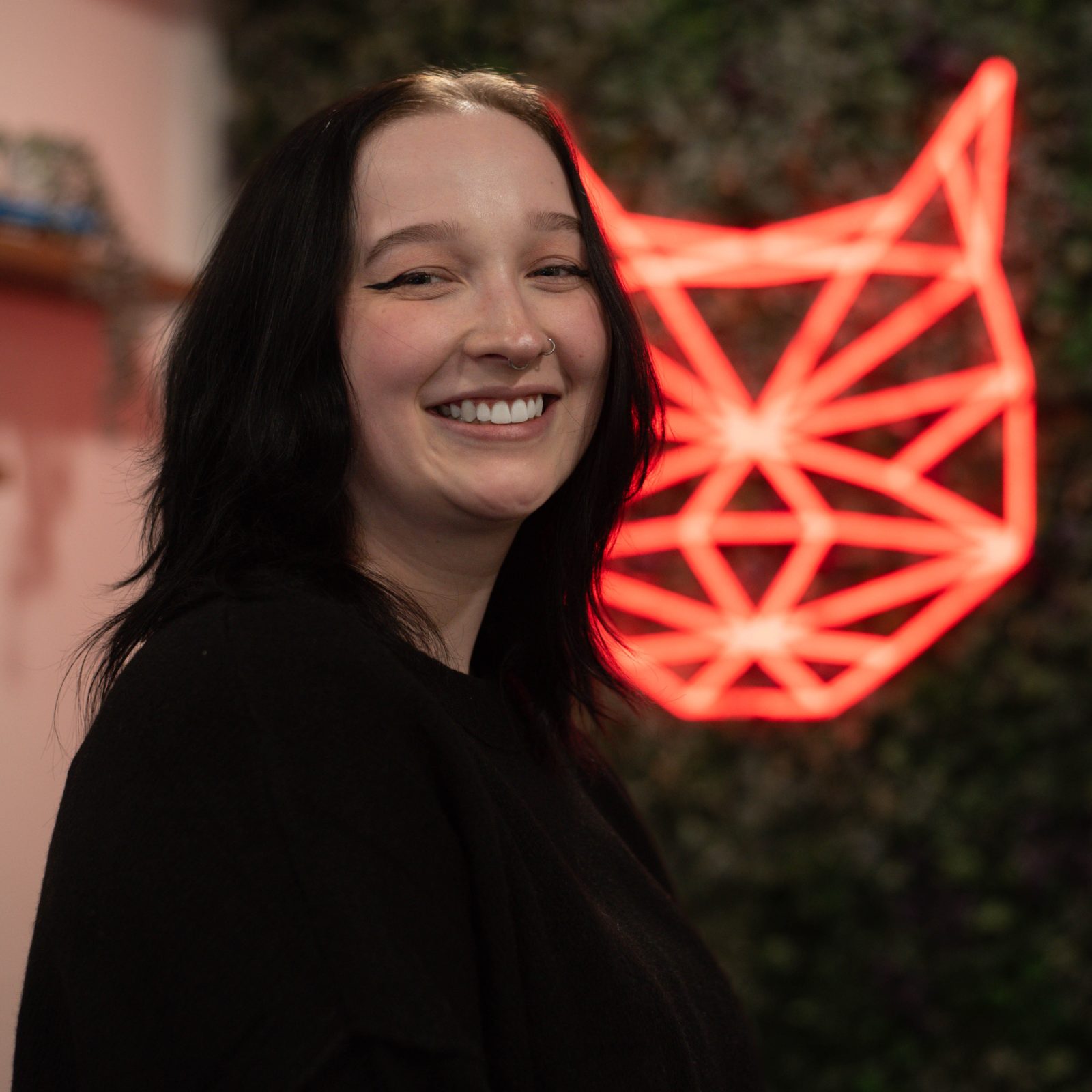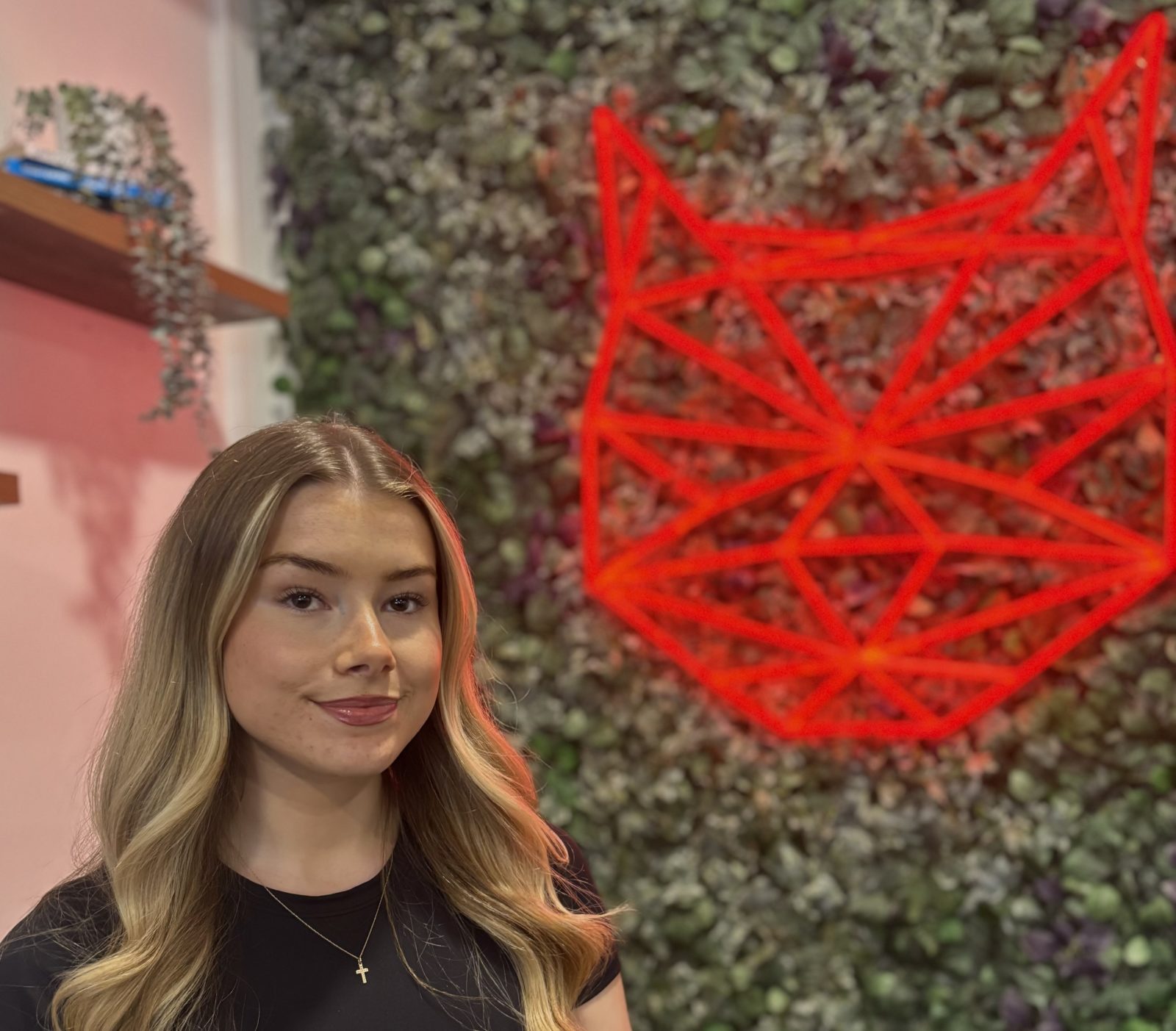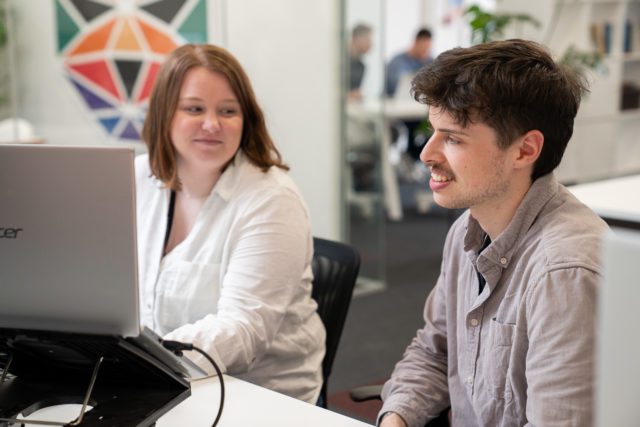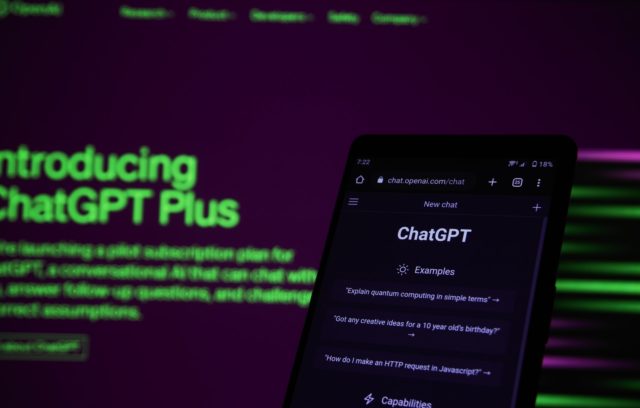Whether you’re new to SEO or have spent the last few years trying to optimise your website, you might be unclear on what the purpose of alt text is and if it’s really needed. Writing effective alt text for images can take time and you might be wondering if it actually helps with SEO. So, is alt text necessary for SEO purposes?
Put simply, yes alt text is a ranking factor for Google image search. This means well-written alt text can help your image, and therefore web page, rank higher in the image search results. It can also have a small impact on your general search rankings, so it’s best to invest some time into learning about and implementing alt text.
Read on for all the information you need to know, including why alt text is important and our top tips on writing effective alt text to boost your image rankings.

Yes, alt text plays a vital role in getting your images recognised by Google Image Search. Within Google Search Documentation, there is a section on Google Image SEO Best Practices which states:
“The most important attribute when it comes to providing more metadata for an image is the alt text (text that describes an image), which also improves accessibility for people who can’t see images on web pages, including users who use screen readers or have low-bandwidth connections.”
This makes it clear that Google values alt text more than other factors, such as filenames, titles and captions, when it comes to understanding images and ranking them in image search results. However, it’s important to note that Google also uses computer vision algorithms and the contents of the page to understand the subject matter of images.
Yes, alt text is an image search ranking factor. According to Google’s John Mueller in a Reddit discussion, human-generated alt text is still a crucial component for images despite an improvement in advanced machine learning models.
Adding alt text to images allows you to provide the search engine with some much-needed context. Although computer vision might be able to identify what the picture is of, it will not be able to pick up on important contextual clues that link the image to your blog post or landing page. Your alt text might include location information, a product name or a target keyword. For example, if you sell used cars and have a picture of your dealership on your website, your alt text might look something like this:
“A RAC-approved used car dealership in Sheffield offering a range of competitively priced cars, including Ford, Peugeot and Renault”.
Alt text is clearly an important factor for image search rankings, but what about general organic search? For this, Google treats alt text like any other text on the page. So, although alt text will contribute to your organic search rankings, its impact is limited.

Alt text helps Google understand what’s included in an image and helps crawlers index and rank an image properly in image search. To learn more about how Google sees your website, read our blog ‘What Does Google See When It Crawls Your Site?’.
However, alt text is not just for crawlers, it’s also important for humans and web accessibility.
One of the primary reasons for adding alt text to images has nothing to do with search engines. Alt text can help users with low vision, visual impairments and different learning abilities to understand images through screen readers, even if they cannot see them. This ensures all users have the same access to content regardless of ability.
The Web Content Accessibility Guidelines include a wide range of information about making websites more accessible, including guidance on alt text, and is an internationally accepted standard for online compliance.
Additionally, some countries have made alt text a legal requirement to improve accessibility:
From an SEO perspective, alt text is important because it can help search engines better understand your images and rank them higher in relevant image search results.
Google Image SEO Best Practices provides some useful guidance on writing alt text:
“When writing alt text, focus on creating useful, information-rich content that uses keywords appropriately and is in context of the content of the page. Avoid filling alt attributes with keywords (also known as keyword stuffing) as it results in a negative user experience and may cause your site to be seen as spam.
Avoid filling alt attributes with keywords (also known as keyword stuffing) as it results in a negative user experience and may cause your site to be seen as spam.”
So, it’s clear that alt text should contain helpful and descriptive information, with appropriate and relevant keywords. Ideally, alt text should allow you to envision an image and also provide important contextual information that will help your image rank in image search results.
Look at these examples for this image:
Here are some more examples of bad vs good alt text provided by Google:
Although writing alt text is relatively straightforward, writing effective alt text is not quite as simple. Follow our 6 simple tips to write alt text that’s useful for both search engines and humans.
Alt text should allow users to clearly picture the image, even if they are unable to see it.
You can use keywords in your alt text, provided they’re relevant to the image and they’re integrated naturally into the sentence.
Although using relevant keywords can boost your image’s rankings, you should never ‘keyword stuff’. For example, “cars for sale, used cars for sale, cheap used cars, used car dealership” would not be an effective alt text for a picture of a used car dealership.
If an image is purely decorative, you can supply an empty alt text (ALT = “”) to mark it as decorative. This is when an image is purely for design purposes and adds no relevant value to the page.
There is no need to include “picture of” or “image of” at the beginning of your alt text, as this is already assumed. However, if the picture is a screenshot, graph or chart you can specify this within the alt text.
For complex images with lots of information, like maps, charts or graphs, it’s best to follow W3C Web Accessibility Initiative guidelines.

If you’re struggling with alt text, meta descriptions, title tags or any other element of technical SEO, the team at Wildcat Digital are here to help. Our technical experts are well-versed in all SEO best practices to help improve your website’s rankings and ultimately increase traffic and conversions.
Contact us today for a free initial consultation to find out how we can help your business punch above its weight online.
Alt text (alternative text) is a type of meta data that describes the appearance, function or importance of an image on a web page. To learn more about different types of metadata, check out our blog, ‘What is Metadata in Laymen’s Terms?’.
It’s simple to see if an image has alt text by inspecting the HTML code. Right-click on the image and choose “inspect” to open up Chrome DevTool. You can then look, or search, for the img alt.
The <img> tag has two required attributes:
Here’s an example of what this looks like in HTML:
<img src=”laptopworking.jpg” alt=”alt=A man writing a blog about digital marketing on a laptop”>
The good news is that you don’t need to be a developer to add alt text to images as many content management systems will easily allow you to add alt text when uploading content.
Alt text is descriptive text designed to help with accessibility. Users with visual impairments or low vision use screen readers to understand internet content, including images. Alt text is read aloud by screen readers to help these users better understand web pages. It is also displayed if an image fails to load and is an important ranking factor for Google image search.
Yes, alt text can have spaces and should be written like a normal sentence.
It’s generally recommended to avoid special characters in alt text.
Google has no official guidelines on how long alt text should be and there is no character or word limit.
However, it’s best to use common sense when writing alt text. Your alt text should be long enough to be descriptive with any relevant information a user or search engine might need to understand the image, without being unnecessarily wrong. Remember that screen readers will read out your alt text to visually impaired users. Typically one or two sentences should be enough.

Founder
Our founder, Will Hitchmough, worked at a number of high profile Sheffield Digital Agencies before founding Wildcat Digital in 2018. He brings an extensive knowledge of all things related to SEO, PPC and Paid Social, as well as an expert knowledge of digital strategy.
Digital Marketing can be a minefield for many businesses, with many agencies ready to take your money without knowing how to deliver results. I founded Wildcat Digital to deliver digital success to businesses with smaller budgets in a transparent way.

Head of Growth
Rich joined us in May 2024 to head up our growth team. With years of experience helping other agencies to grow, Rich joins us at an exciting time as Wildcat is working on a five-year plan to become one of the biggest agencies in the UK.
Outside of work, Rich is a father to three children, which keeps him very busy! He’s also recently started running again to keep fit and loves a bit of DIY.

Head of Digital
Sarah joined Wildcat in January 2025, bringing over seven years of SEO expertise to the team. With a background in Fashion Communication and Promotion, she has worked both in-house and at agencies, covering a range of digital marketing specialisms before focusing on SEO.
Passionate about all things search, Sarah thrives on helping brands grow their online presence.
Outside of work, she enjoys walking her dog, running, and shopping for vintage clothing.

Office Manager
Amelia joined Wildcat Digital in January 2025, bringing extensive experience in HR, Health & Safety, Facilities Management and IT Support. Previously an Operations Manager at The University of Sheffield, she has a strong background in creating efficient and well-organized work environments.
Specialising in HR, Health & Safety, and Facilities Management, Amelia ensures the Wildcat Digital team has the resources and support needed to thrive. Whether managing office operations, maintaining compliance, or fostering a positive workplace culture, she keeps everything running smoothly.
Outside of work, Amelia loves trying new things, traveling, camping, and walking. She also enjoys socialising and exploring new places with friends and family. Her adventurous spirit and proactive approach make her a valued member of the team.

Client Success Coordinator
Siena joined us in 2023 with a background in sales and digital marketing. She leads on client relationships across the company, ensuring that our customers are happy throughout their journey with us, from their initial consultation through to onboarding and beyond.
Outside of work, Siena enjoys travelling and getting stuck into the local culture. She likes to make the most of her experiences and particularly enjoys watching sunrises and sunsets from beautiful locations around the world.

SEO Account Director
Paul has a strong background in SEO, having previously founded and ran a successful eCommerce business, as well as running a personal blog that achieves an average of 17K users per month. Paul’s knowledge of SEO is extensive, with a strong emphasis on client handling and technical SEO.
Outside of work, Paul enjoys spending time with his family and staying active with weight lifting and combat sports.

Team Lead & Technical SEO Account Manager
With a degree in Computer Science and SEO experience dating back to 2017, Dariusz has a wide range of SEO skills and knowledge. His specialist knowledge of Technical SEO has firmly landed him the title of Wildcat’s Technical Wizard, and he has recently taken on the responsibility of Team Leader for the Panthers Team.
In his spare time, Dariusz loves hiking, experimenting and trying new coffees and loves learning new things. He is currently learning more about CRO and AI and how this could benefit our clients.

Team Lead & Senior SEO Account Manager
With a background in sales, Molly is a natural Account Manager, brilliantly handling any issues that come her way. Having joined us as a Digital Marketing Executive, and working part-time through her final year of University, Molly is a shining example of how hard work pays off. She is now an SEO Account Manager with a particular interest in Content and Client Management.
In her spare time, Molly loves to get out in nature, hiking and exploring the Peak District. She also loves cooking and likes to unwind with a bit of yoga.

PPC Team Leader
Libby joined Wildcat in 2021 as our first PPC hire. With a degree in Digital Media Production, a Master’s in Digital Media Management and previous experience in Social Media Management, Libby hit the ground running and has since climbed the ranks to Senior PPC Account Manager and has a particular interest in the eCommerce sector.
Outside of work, Libby likes gaming, and cooking and likes to keep active by lifting weights.

Senior SEO Account Manager
With a degree in Film and TV production, and a varied career history, Jamie made the move to marketing with a Masters degree in Digital Media Management. He has since worked in SEO at Agencies across Sheffield, before joining Wildcat and working his way up to SEO Account Manager. Jamie has a particular interest in backlinks and Digital PR and has recently gained a client a valuable backlink from Forbes!
In his spare time, Jamie is an avid foodie and loves trying new restaurants and cuisines. He also loves to travel and spent a year travelling to Australia after university.

SEO Account Manager
Jasmine joined Wildcat in 2022 with a strong background in SEO and Account Management. At the time, she was finishing up a Level 4 Apprenticeship in Digital Marketing from the Chartered Institute of Marketing, and has since worked her way up to SEO Account Manager. Jasmine excels at content writing and promotion, and particularly enjoys finding creative ways to join the dots on multi-channel campaigns.
In her spare time, Jasmine volunteers at a charity, helping combat loneliness & social isolation experienced by older neighbours. Outside of Wildcat, she owns a catering company, Savery Grazing, creating delicious grazing tables & platters for a range of events. She also loves skiing and exploring the Peak District.

Senior SEO Executive
After spending ten years managing businesses, restaurants, cafes and event spaces across Sheffield, Jon decided to change careers and joined Wildcat as an SEO Executive in 2022. He especially enjoys the client management side of the job, helping them to understand digital marketing and ways in which they can build their business’s presence online.
Outside of work, Jon likes to keep fit with running, badminton and football, and also loves music.

Senior SEO Executive
Andy joined Wildcat in 2023 after starting his digital marketing career in-house for a local Sheffield company. Since joining, he has developed a strong interest in Technical SEO and has strong skills in Account Management.
Outside of work, Andy loves music and plays in a couple of bands. He also enjoys rock climbing, cycling, photography and good food.

PPC Executive
Before joining Wildcat, Tom worked across different industries, building skills in sales and customer service. He later developed a passion for digital marketing whilst working on personal marketing projects and freelance ventures, and gained numerous certifications in PPC and Social Media.
Outside of work, Tom enjoys staying active by going to the gym and hiking. He also loves travelling and motorbiking.

Senior SEO Executive
Kezia joined us in July 2024 after completing a CIM Certificate in Digital Marketing and gaining experience in Content SEO at another Sheffield agency.
In her spare time, Kezia loves to get outdoors, bouldering, hiking and travelling.

Senior PPC Executive
Alex joined Wildcat Digital in December 2024 as a Senior PPC Executive, bringing a strong background in Paid Media, Paid Social, and Programmatic advertising. With a degree in Business & Marketing and Google Ads certifications, she has the expertise to craft high-performing campaigns that drive results.
Before joining Wildcat Digital, Alex worked at two leading agencies in Leeds, honing her skills across various digital advertising platforms. Her analytical mindset and strategic approach help businesses maximize their online presence and advertising budgets.
Outside of work, Alex enjoys spending time with her dog, Lola, and going on walks with her dog walking group. She’s also a keen footballer and loves playing five-a-side whenever she gets the chance. Her enthusiasm and team spirit make him a great addition to the Wildcat Digital team.

SEO Executive
Amy joined Wildcat in 2024 with a background in journalism, having worked as a News Editor and Editor-in-Chief at The Sheffield Tab. She is naturally interested in Content SEO and research, so will no doubt prove to be a content power-house.
In her spare time, Amy loves watching crime shows, listening to music and hanging out with her dog, Eddie!

SEO Executive
Reiss joined the Wildcat Digital team in July 2025, with a background in journalism and digital content, Reiss brings both creativity and technical know-how to the team.
After graduating with a Journalism Studies BA from the University of Sheffield, where he also served as Games Editor and Deputy Editor for the student-run newspaper – Reiss jumped straight into the world of climate tech communications.
Outside of work, Reiss loves crochet, swimming, playing guitar, and diving into both video and board games. He’s always up for picking up new skills and trying new things – which makes him a perfect fit for our team!

Content & Proposal Writer
Liv joined the WildcatDigital Team in June 2025, with a strong background in financial admin and client care, Olivia is taking an exciting step into the creative world – and we’re so glad she’s doing it with us!
She’s currently studying content creation through her apprenticeship with Wildcat, and already bringing fresh energy and creativity to the team.
Outside of work, Olivia runs her own BIAB nail business, loves reformer Pilates, long walks, and is a member of a competitive dance team.

January 26, 2026
We made it to the end of January! One month into 2026, and it feels like a lot has changed.…

January 23, 2026
Many businesses assume that Author and Meet the Team pages are simply a nice way to showcase the people behind…

December 17, 2025
As we enter into 2026 and reflect back on the year as business owners and digital marketers, we can’t help…